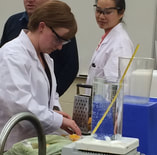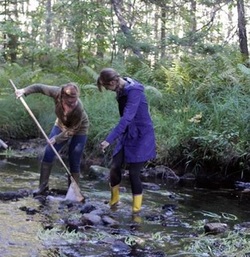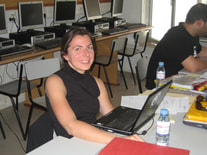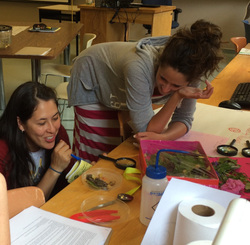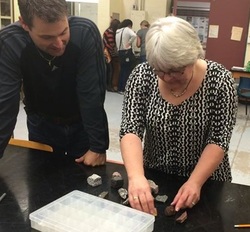Teaching and Research Awards
Fulbright Canada Research Chair in Arctic Studies, University of Washington (2019-2020)
SSHRC Exchange University Research Chair in Social Sciences and Humanities (2019-2022; returned 2019)
CBU Teaching Chair in Open, Online and Blended Learning (2017-2019)
Cape Breton University Instructional Leadership award. (2016)
Graduate Student Research Award, CAUCE (2016)
SSHRC Exchange University Research Chair in Social Sciences and Humanities (2019-2022; returned 2019)
CBU Teaching Chair in Open, Online and Blended Learning (2017-2019)
Cape Breton University Instructional Leadership award. (2016)
Graduate Student Research Award, CAUCE (2016)
Current Courses 2020-21
ED 5110
Proactive Instructional Leadership in Nunavut Communities
The responsibilities, roles and tasks of principals and other educational leaders are explored as they relate to the creation of a positive, inclusive, collaborative and culturally responsive school community. the role of leadership in teaching and learning and building positive relationships, both in and outside of school is examined as a key factor in facilitating the academic achievement and well-being of learners, A variety of culturally appropriate facilitation strategies are introduced as participants analyze the legal, moral, ethical, and policy rights of learners and educators in maintaining and strengthening culture and language and promoting success in schools, the local community and the world beyond,
Previous Teaching at UPEI (2019 -
CELN ED 5140
Previous Teaching at CBU (2014-2019)
EDUC 6101
Indigenous and Global Perspectives on Sustainability, Creativity and Innovation
Masters of Education SCI
|
Formal and non-formal education initiatives have embraced Education for Sustainability (EfS) throughout the world with practical accomplishments – modeling processes and practices that are transforming communities, schools and education. Students will explore global perspectives on EfS, entrepreneurship, indigenous worldviews, and Living Schools with potential applications to their educational setting.
This course is designed for bi-directional sharing of experience with an open invitations to global educators to share stories of sustainability and transformation so that we may learn from one another. Listen to some of our guest speakers: https://vimeopro.com/user45239391/educ6106 |
EDUC 5800 Applied Research Project
EDUC 5800 offers students the opportunity for practioner research- that is to be a teacher researcher. Within this course participants are guided through the process of conducting a practioner research project. They select an issue or problem observed in their teaching context, design a technological solution, implement it and evaluate its effectiveness using accepted academic strategies.
EDUC 5131
Digital Citizenship for a Global Community
Digital citizenship can be defined as the norms of appropriate and responsible behaviour online. Within this course we will examine digital citizenship from two major perspectives: responsible use in the K-12 environment and the world beyond schools. Within each perspective we will review policy and practice, rights and responsibilities, safety and security, as well as health and wellness. Some specific themes include cyber bullying, digital etiquette, access, copyright, flat classrooms, the digital divide and civic engagement.
EDUC 4141 & 4142
|
EDUC 5105
|
EDUC 5123
|
EDUC 5117
|
|
|
EDUC 5124 Implementing Scientific Inquiry in the Classroom
|
|
|
This course is intended to give educators a first-hand experience of the student's perspective within a scientific inquiry-based learning environment. It will also provide students with an opportunity to practice constructing teaching modules. This course will focus on some interdisciplinary subjects within science such as climate change, human impact on the environment, planetary astronomy, etc. Students will explore the subject area through a sequence of inquiry-based units. At the conclusion of the course students will create a teaching module based on their findings from one of the units explored earlier in the course. Required for Certificate in Science Education.
|

